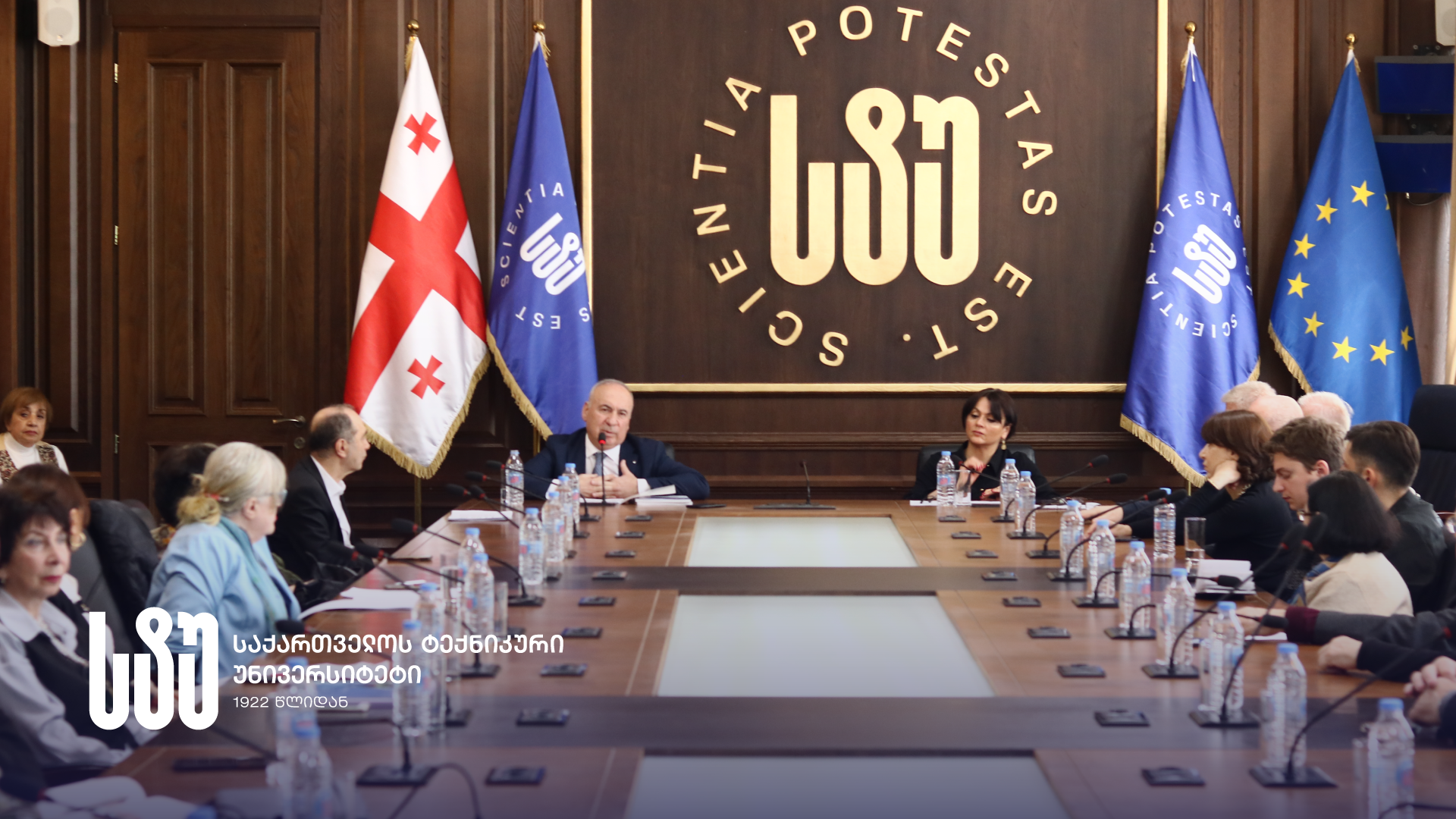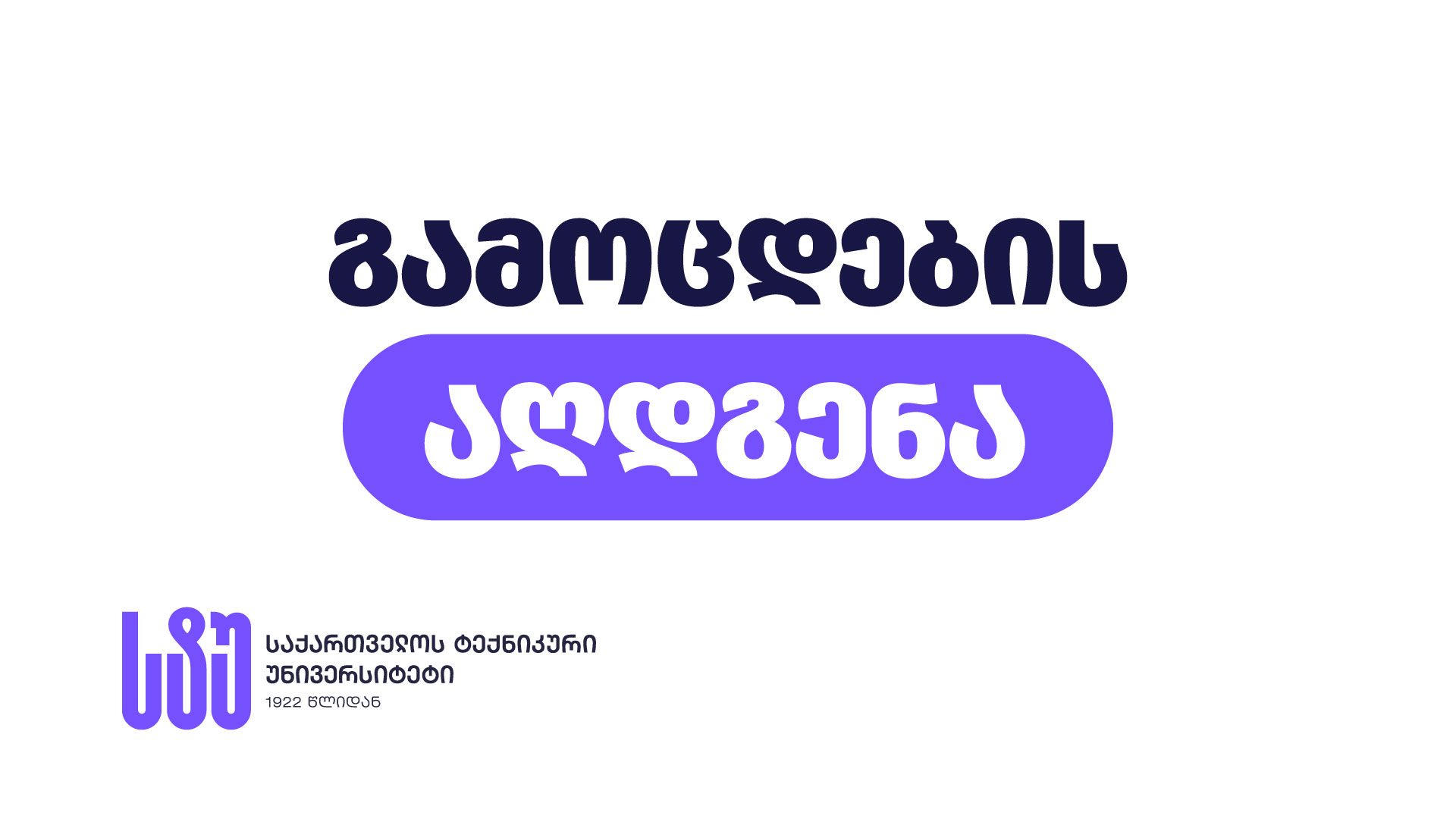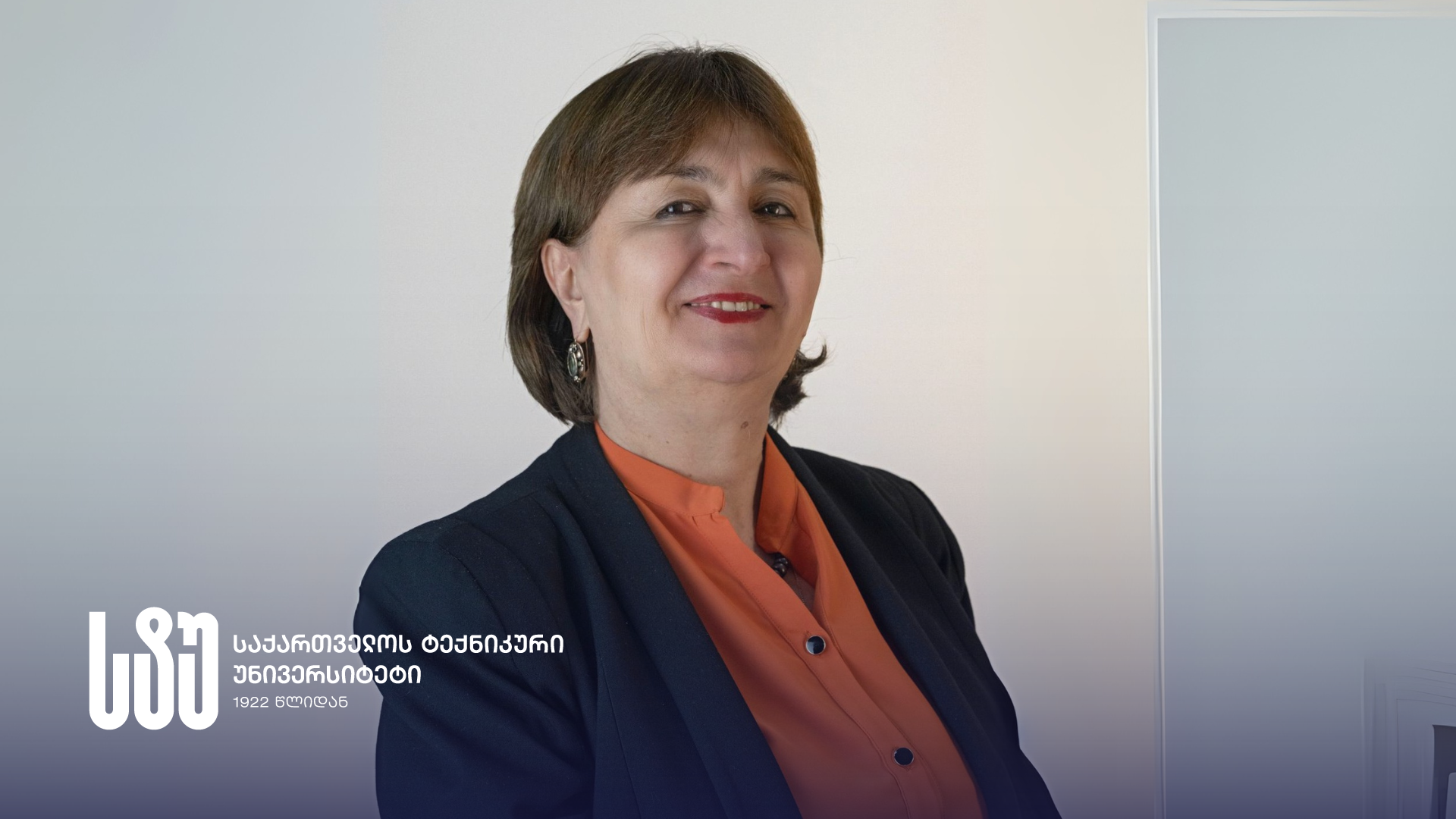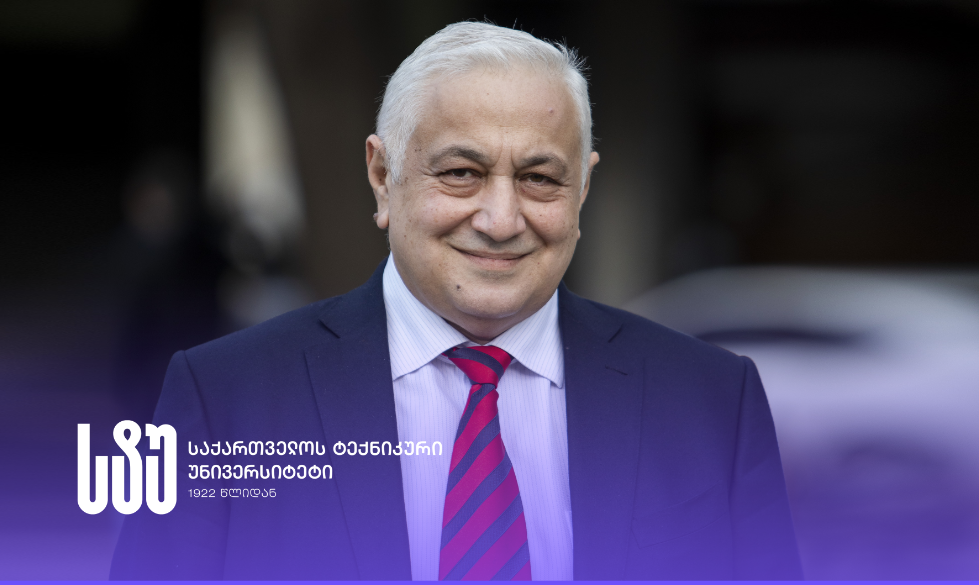A Scientific Conference Held at the Georgian Technical University on Waste Management and Circular Economy
10-03-2025
A scientific conference was held at the Georgian Technical University, organized by the Department of Science and Innovations and the Scientific Research Institute of Hydrometeorology of the Georgian Technical University, on the topics of waste management, the development of a circular economy in the country, and research cooperation in this direction.
The conference was opened by the Vice-Rector of the Georgian Technical University, Professor Tamar Lominadze. The scientific event was attended by the Deputy Minister of Environmental Protection and Agriculture of Georgia, Honorary Doctor of the Georgian Technical University, Academician Solomon Pavliashvili, Professor of the Faculty of Engineering and Technology of Jadavpur University, India, Sadhan Kumar Ghosh, Chairwoman of the organization “Greens of Georgia - Friends of the Earth” Nino Chkhobadze, Environmental Protection Manager of the Waste Management Business Association Khatuna Chikviladze, Chairwoman of the Nature Researchers’ Union “Orkisi” Mariam Kimeridze, representatives of the Ministry of Environmental Protection and Agriculture, heads of non-governmental organizations, environmental protection managers of business companies, scientists from the Georgian Technical University and field experts.
According to the Vice-Rector, proper waste management and the development of a circular economy are of great importance in the context of the country’s sustainable development. According to her, the scientific conference focuses on globally proven waste management practices and the possibilities of transitioning to a circular economy.
“In today’s reality, each of us deeply understands the great importance of proper waste management and circular economy development in the context of the country’s sustainable development. For the same reason, today’s scientific conference is widely representative, and the participants focus on the world-proven practices of waste management, as well as the opportunities for transitioning to a circular economy. Waste management is not only an environmental problem. It also includes economic, social, and health aspects. By properly managing waste, we will avoid the dangers of environmental pollution, which poses significant threats to our country’s natural ecosystems and public health. That is why it is necessary to share and develop innovative technologies that will enable us to minimize waste, properly process and recycle it, and sustainably use natural resources. We will cope with these challenges by developing a circular economy. In Georgia, we have the opportunity to develop and implement the latest models of a circular economy that will not only solve problems but also create new economic opportunities.
Scientists, young researchers, and talented students of the Georgian Technical University have a wide potential to actively engage in the implementation of innovative technologies and systems for waste management and reduction and the development of a circular economy. We believe that this process requires joint efforts - active involvement and effective collaboration of the governmental and non-governmental sectors, scientific and academic circles, as well as industries, to comprehensively manage waste and implement the principles of a circular economy in all possible directions for the sustainable future of Georgia,” noted Tamar Lominadze.

The Deputy Minister of Environmental Protection and Agriculture of Georgia addressed the conference participants. Solomon Pavliashvili thanked the Rector of the Georgian Technical University, Academician David Gurgenidze, the university administration, and scientists for their support.
As the Deputy Minister noted, the transition to a circular economy is extremely important for the country, as it makes possible to deal with such important challenges as sustainable development and sustainable use of resources, eliminating environmental pollution, and mitigating climate change.
“The circular economy creates opportunities to attract new initiatives that, with environmental protection, modernize and transform the economy. Our goal is to produce sustainable products that will be used for a long time, enabling our citizens to engage in the circular economy and reap the benefits. It is worth noting that the circular economy uses natural resources efficiently, preserving their value through the circulation of materials and goods. In a circular economy, products are created in such a way that they are durable and can be modernized, repaired, and reused; in addition, the circular economy envisages the secondary use of the materials used to make them, extending their service life after the product is removed from use. All this reduces the harmful impact of economic activity on the environment and human health and creates additional solid guarantees for the sustainable development of the country,” said Solomon Pavliashvili.
The heads of non-governmental organizations Nino Chkhobadze, Mariam Kimeridze, Khatuna Chikviladze, Head of the Environmental Protection Direction of the GGU Group Nino Sulkhanishvili, Professor Sadhan Kumar Ghosh, Head of the Department of Science and Innovation of the Georgian Technical University Professor Mikheil Janikashvili and other participants of the event delivered speeches at the scientific conference.
Professor Sadhan Kumar Ghosh of Jadavpur University, who is also the General Director of the Research Center for Sustainable Development and Circular Economy, delivered a presentation to the conference participants on “Waste Management, Circular Economy and Research Collaboration”.
The conference was opened by the Vice-Rector of the Georgian Technical University, Professor Tamar Lominadze. The scientific event was attended by the Deputy Minister of Environmental Protection and Agriculture of Georgia, Honorary Doctor of the Georgian Technical University, Academician Solomon Pavliashvili, Professor of the Faculty of Engineering and Technology of Jadavpur University, India, Sadhan Kumar Ghosh, Chairwoman of the organization “Greens of Georgia - Friends of the Earth” Nino Chkhobadze, Environmental Protection Manager of the Waste Management Business Association Khatuna Chikviladze, Chairwoman of the Nature Researchers’ Union “Orkisi” Mariam Kimeridze, representatives of the Ministry of Environmental Protection and Agriculture, heads of non-governmental organizations, environmental protection managers of business companies, scientists from the Georgian Technical University and field experts.
According to the Vice-Rector, proper waste management and the development of a circular economy are of great importance in the context of the country’s sustainable development. According to her, the scientific conference focuses on globally proven waste management practices and the possibilities of transitioning to a circular economy.
“In today’s reality, each of us deeply understands the great importance of proper waste management and circular economy development in the context of the country’s sustainable development. For the same reason, today’s scientific conference is widely representative, and the participants focus on the world-proven practices of waste management, as well as the opportunities for transitioning to a circular economy. Waste management is not only an environmental problem. It also includes economic, social, and health aspects. By properly managing waste, we will avoid the dangers of environmental pollution, which poses significant threats to our country’s natural ecosystems and public health. That is why it is necessary to share and develop innovative technologies that will enable us to minimize waste, properly process and recycle it, and sustainably use natural resources. We will cope with these challenges by developing a circular economy. In Georgia, we have the opportunity to develop and implement the latest models of a circular economy that will not only solve problems but also create new economic opportunities.
Scientists, young researchers, and talented students of the Georgian Technical University have a wide potential to actively engage in the implementation of innovative technologies and systems for waste management and reduction and the development of a circular economy. We believe that this process requires joint efforts - active involvement and effective collaboration of the governmental and non-governmental sectors, scientific and academic circles, as well as industries, to comprehensively manage waste and implement the principles of a circular economy in all possible directions for the sustainable future of Georgia,” noted Tamar Lominadze.

The Deputy Minister of Environmental Protection and Agriculture of Georgia addressed the conference participants. Solomon Pavliashvili thanked the Rector of the Georgian Technical University, Academician David Gurgenidze, the university administration, and scientists for their support.
As the Deputy Minister noted, the transition to a circular economy is extremely important for the country, as it makes possible to deal with such important challenges as sustainable development and sustainable use of resources, eliminating environmental pollution, and mitigating climate change.
“The circular economy creates opportunities to attract new initiatives that, with environmental protection, modernize and transform the economy. Our goal is to produce sustainable products that will be used for a long time, enabling our citizens to engage in the circular economy and reap the benefits. It is worth noting that the circular economy uses natural resources efficiently, preserving their value through the circulation of materials and goods. In a circular economy, products are created in such a way that they are durable and can be modernized, repaired, and reused; in addition, the circular economy envisages the secondary use of the materials used to make them, extending their service life after the product is removed from use. All this reduces the harmful impact of economic activity on the environment and human health and creates additional solid guarantees for the sustainable development of the country,” said Solomon Pavliashvili.
The heads of non-governmental organizations Nino Chkhobadze, Mariam Kimeridze, Khatuna Chikviladze, Head of the Environmental Protection Direction of the GGU Group Nino Sulkhanishvili, Professor Sadhan Kumar Ghosh, Head of the Department of Science and Innovation of the Georgian Technical University Professor Mikheil Janikashvili and other participants of the event delivered speeches at the scientific conference.
Professor Sadhan Kumar Ghosh of Jadavpur University, who is also the General Director of the Research Center for Sustainable Development and Circular Economy, delivered a presentation to the conference participants on “Waste Management, Circular Economy and Research Collaboration”.


